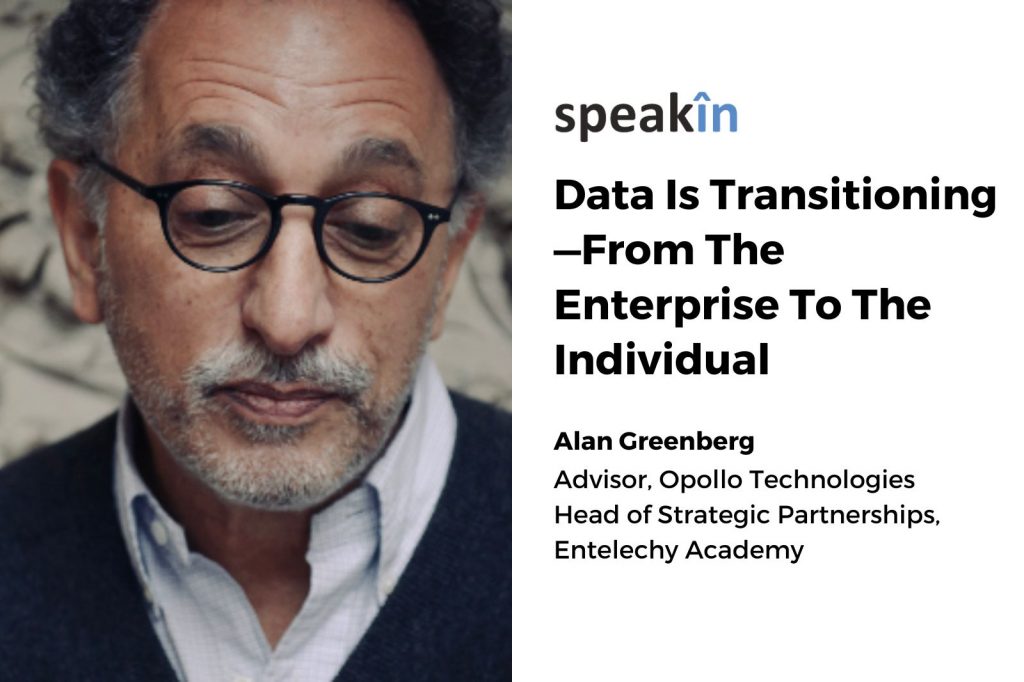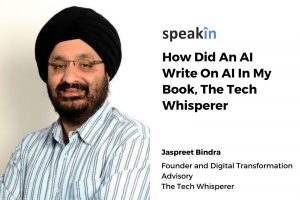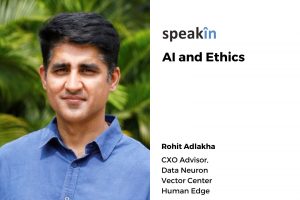Data Is Transitioning—From The Enterprise To The Individual

In 2019, The Guardian newspaper revealed that Siri graders regularly heard confidential information as part of their job assessing the voice assistant’s responses for quality. Apple apologised, and after a three-month pause to the grading programme allowed users to opt out of having their speech analysed by humans.
The question to be asked is whether Siri or Alexa is always listening to you. Is the microphone on your Alexa smart speaker always active, at least by default, and is constantly monitoring voices in your home in order to hear its wake word? Now, if you consider quantum computing and 5G networks, these sort of data capture opportunities could be much more pervasive than we perceive them to be now at this point. But then it’s a tradeoff between their intrusiveness and the value they bring, which will persuade us to put up with them and accept them within our ecosystem.
Look at Amazon, by far the leading retail environment across the world. It started as a book shop but it has always been obsessed with our data. While the Amazon retail empire is built on a complex web of infrastructure and working practices, its success if built upon an intricate knowledge of what millions of people buy and browse every day. They collect information and build profiles in order to serve us better and I, as a customer, may be comfortable with that because of the value that I get in return. But there are questions to be considered in terms of the data exchange: Are we comfortable with a private enterprise collecting so much personal information about us in exchange of recommendation about products?
Or you look at the banking world. They offer financial services to us as customers and address business challenges such as fraud. They manage these risks in a professional manner, but the use of our personal data they get access to comes with privacy and security concerns. However, now, as Deloitte said in a recent report, “emerging privacy enhancing techniques (PETs) have the potential to fundamentally alter these dynamics by reducing or eliminating the privacy risks of sharing data and opening the opportunities to create value.”
So, what is data-driven analytics? When a company employs a data-driven approach, it means it make strategic decisions based on data analysis and interpretation. A data-driven approach enables companies to examine and organise their data with the goal of better serving their customers.
One of the most interesting areas of data analytics and data development is digital twins. Quite simply, a digital twin is a virtual model of a process, product or service. This pairing of the virtual and physical worlds allows analysis of data and monitoring of systems to head off problems before they even occur, prevent downtime, develop new opportunities and even plan for the future by using simulations.
To those less familiar with digital twins, let me cite an example. Imagine a situation where a hospital is managing the medical information for hundreds if not thousands of patients, and the efficiency of that data is key. That information is used by the hospital at the right time for them to be able make an assessment to understand where someone is in their health cycle to be able to treat them appropriately.
Now, with computing, you have the ability to run a digital twin, in other words to have a virtual hospital, which is running the same or similar datasets that the real hospital is managing to be able to do predictive analysis on the digital twin. This analysis is not dangerous and it is not potentially compromising the individual patient. What it is doing is running analysis of whether the care needs to move in a different direction or towards another diagnostic capability.
Now, apply these lessons that are learned and opportunities that are uncovered within the virtual environment to the physical world—and you can see the almost limitless opportunities to ultimately transform business.
Looking at the past two years, one of the observations I’ve made is that Covid and its impact is that we have had to drive innovation. Take the simple example of how impact has home delivery service been in UK, US, or other parts of the world, during an extended phase where we have not been able to leave our homes for things that were once absolutely normal—like grocery shopping. Now we sit in our bedrooms, or in our remote locations, and have those products and services delivered. It’s been about service providers understanding our needs and personalising of the products and services relevant to us.
So, data is transitioning—from the enterprise to the individual. That’s certainly true in terms of the two areas that are integral to the world I operate in—education and health. The ability to have a digital wallet, which is your identity and contains information that is relevant for you. It has information about your health or education, maybe even profiling of skills that help an employer understanding your skills-set, even our soft skills. So, our digital identity is going to play a key part going forward. Blockchain is going play an important part in building that environment being a secure and incorruptible environment that can help validate who we are.
[This is an excerpt from a full-length Live Learning session talk delivered by the author in March 2022.]
About Alan Greenberg
Alan is the former Director of Apple Education EMEA, and then Asia, between 2004-2009. He led the team that built podcasting, and then launched iTunes U in the UK and Europe. He is currently director, advisor, consultant, and VC to a portfolio of education and healthtech businesses.





